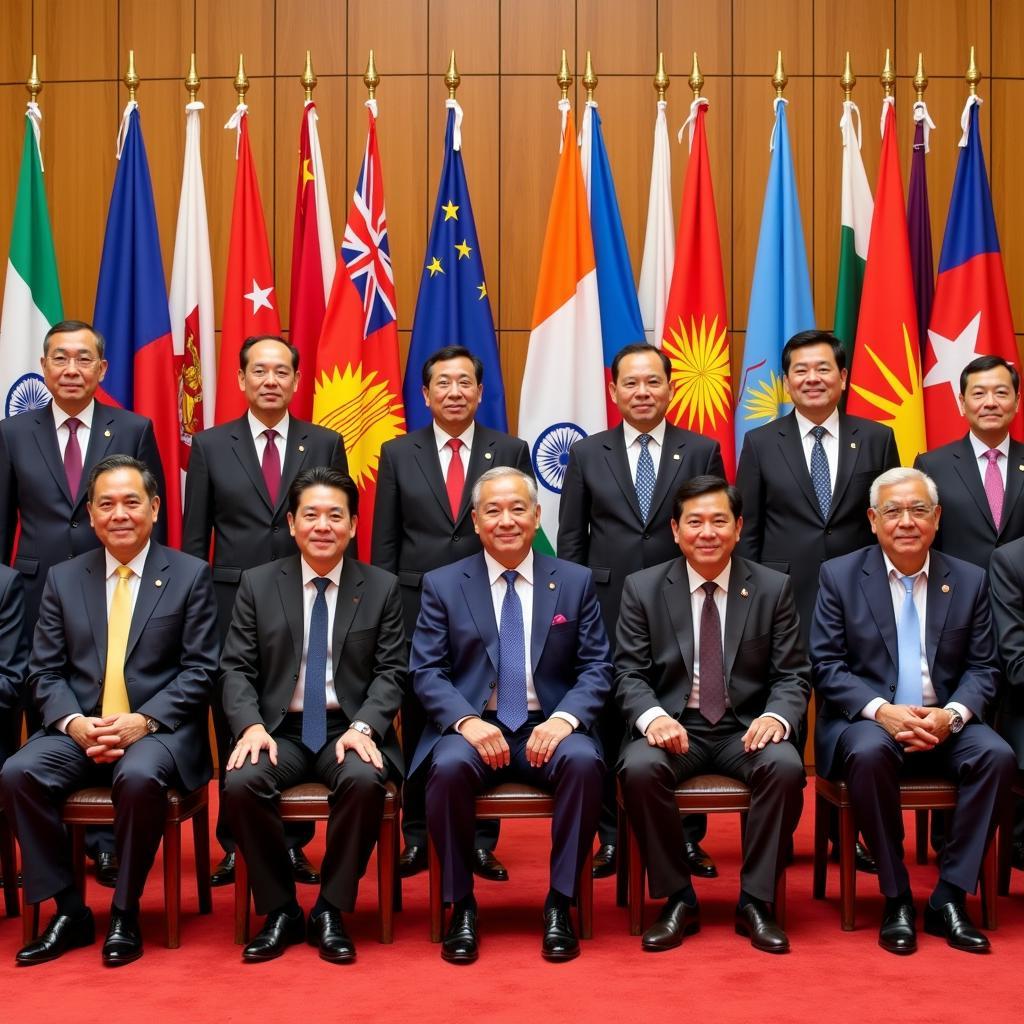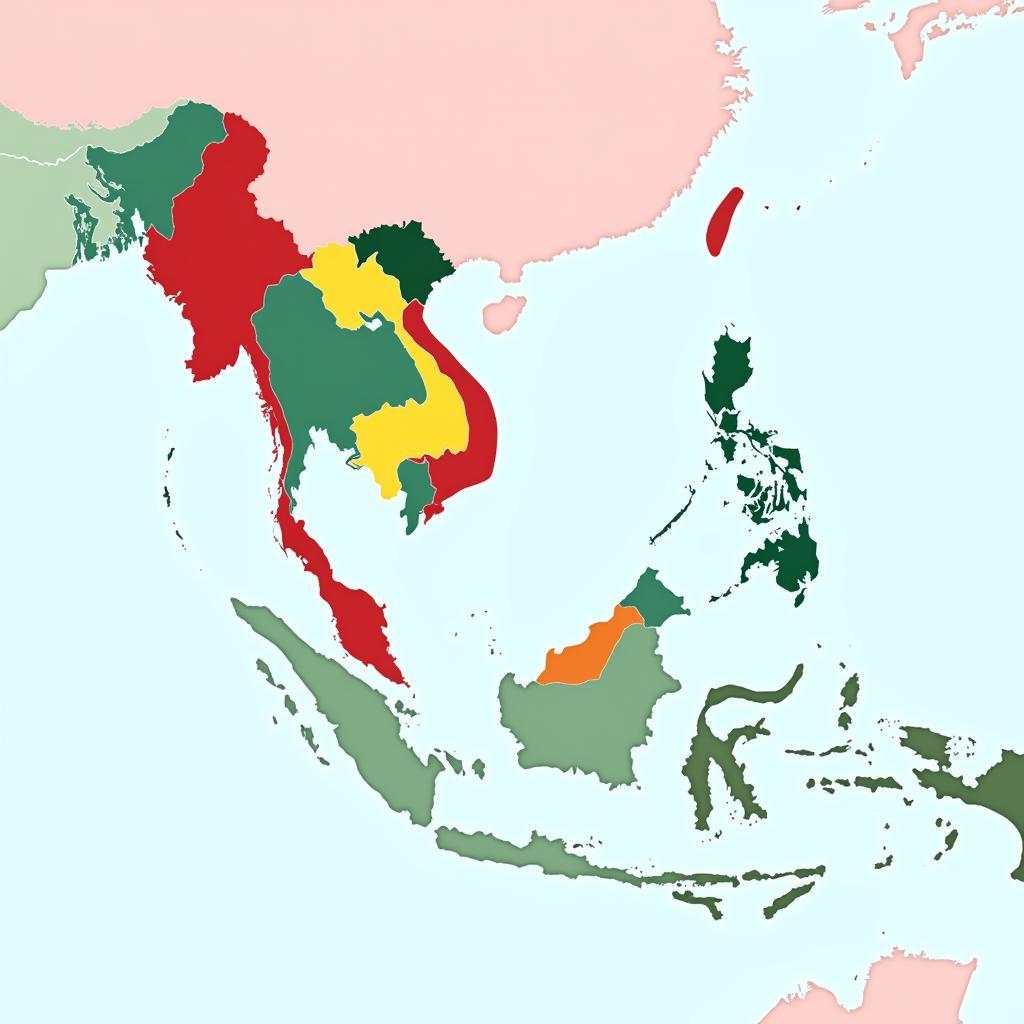Aung San Suu Kyi and ASEAN have a long and intertwined history, marked by both cooperation and controversy. This relationship has been shaped by Myanmar’s political landscape and its interaction with the regional bloc. Understanding this complex dynamic is key to comprehending the ongoing challenges within ASEAN.
Aung San Suu Kyi’s Rise and Fall: Implications for ASEAN
Aung San Suu Kyi, once an international icon of democracy, played a significant role in Myanmar’s transition from military rule. Her release from house arrest in 2010 and subsequent political victories signaled a new era for the country and its engagement with ASEAN. The regional bloc, keen to embrace a democratizing Myanmar, welcomed Aung San Suu Kyi and her National League for Democracy (NLD) with open arms. This period of optimism saw increased cooperation and integration of Myanmar into the ASEAN community.
However, the Rohingya crisis, which erupted in 2017, drastically altered the narrative. The accusations of genocide and ethnic cleansing against the Myanmar military, coupled with Aung San Suu Kyi’s perceived inaction and defense of the military’s actions, tarnished her international reputation and strained her relationship with ASEAN. The bloc found itself in a difficult position, balancing its principle of non-interference with the international pressure to address the human rights violations within Myanmar.
The 2021 military coup, which once again placed Aung San Suu Kyi under house arrest, further complicated the situation. ASEAN’s response to the coup has been cautious, emphasizing dialogue and a return to democratic principles. However, the continued violence and political instability in Myanmar pose a significant challenge to the bloc’s credibility and its ability to effectively address internal conflicts.
asean aung san suu kyi malaysia prime minister
ASEAN’s Role in the Myanmar Crisis: Navigating a Difficult Path
How has ASEAN responded to the changing political landscape in Myanmar, particularly concerning Aung San Suu Kyi and the Rohingya crisis? The organization has faced criticism for its perceived inaction and adherence to the principle of non-interference. However, ASEAN has also taken some steps to address the crisis, including mediating dialogue between the military and the NLD, providing humanitarian assistance to displaced populations, and calling for a peaceful resolution to the conflict.
What are ASEAN’s limitations in addressing the Myanmar situation?
ASEAN’s charter emphasizes non-interference in the internal affairs of member states, which limits its ability to directly intervene in the Myanmar crisis. Furthermore, the diverse political and economic interests of ASEAN member states make it difficult to achieve a unified stance on the issue. Some members prioritize maintaining economic ties with Myanmar, while others are more vocal in condemning the human rights violations.
“ASEAN’s response to the Myanmar crisis has been a delicate balancing act,” explains Dr. Anya Sharma, a Southeast Asian political analyst. “The organization is navigating a complex web of internal politics, regional stability, and international pressure.”
asean aung san suu kyi maharthiya
What are the potential implications of the Myanmar crisis for ASEAN’s future?
The Myanmar crisis poses a significant test for ASEAN’s credibility and its ability to address future challenges. The bloc’s effectiveness in resolving the crisis will impact its standing on the international stage and its ability to promote regional stability. A failure to address the situation could undermine ASEAN’s core principles and its role as a key player in Southeast Asian affairs.
The Future of ASEAN and Myanmar: Uncertain Terrain
The relationship between Asean And Aung San Suu Kyi remains uncertain, as does the future of Myanmar. The international community continues to call for a return to democracy and the restoration of human rights in the country. ASEAN’s role in facilitating this process will be crucial, though its effectiveness remains to be seen.
asean ambassador aung san suu kyi
Professor Kyaw Zaw, a Myanmar historian, notes, “The path forward for Myanmar and its relationship with ASEAN is fraught with challenges. Finding a sustainable solution requires a concerted effort from all stakeholders, including the military, the NLD, and the international community.”
In conclusion, the relationship between ASEAN and Aung San Suu Kyi is a complex and evolving one, deeply intertwined with the political landscape of Myanmar. The Rohingya crisis and the military coup have presented significant challenges to both Aung San Suu Kyi and the ASEAN bloc. The future of this relationship, and of Myanmar itself, remains uncertain.
FAQ
- What is ASEAN’s stance on the Rohingya crisis?
- How has ASEAN responded to the military coup in Myanmar?
- What are the challenges facing ASEAN in addressing the Myanmar crisis?
- What is the significance of Aung San Suu Kyi’s role in the relationship between ASEAN and Myanmar?
- What are the potential implications of the Myanmar crisis for ASEAN’s future?
- What is the current status of Aung San Suu Kyi?
- What are the prospects for democracy in Myanmar?
Need more information? Explore these related articles: ASEAN Aung San Suu Kyi Malaysia Prime Minister, ASEAN Aung San Suu Kyi Maharthiya, ASE MBA, ASEA Constitution, ASEAN Ambassador Aung San Suu Kyi.
When you need assistance, please contact us: Phone: 0369020373, Email: aseanmediadirectory@gmail.com or visit us at: Ngoc Lien Village, Hiep Hoa, Bac Giang, Vietnam. We have a 24/7 customer service team.


